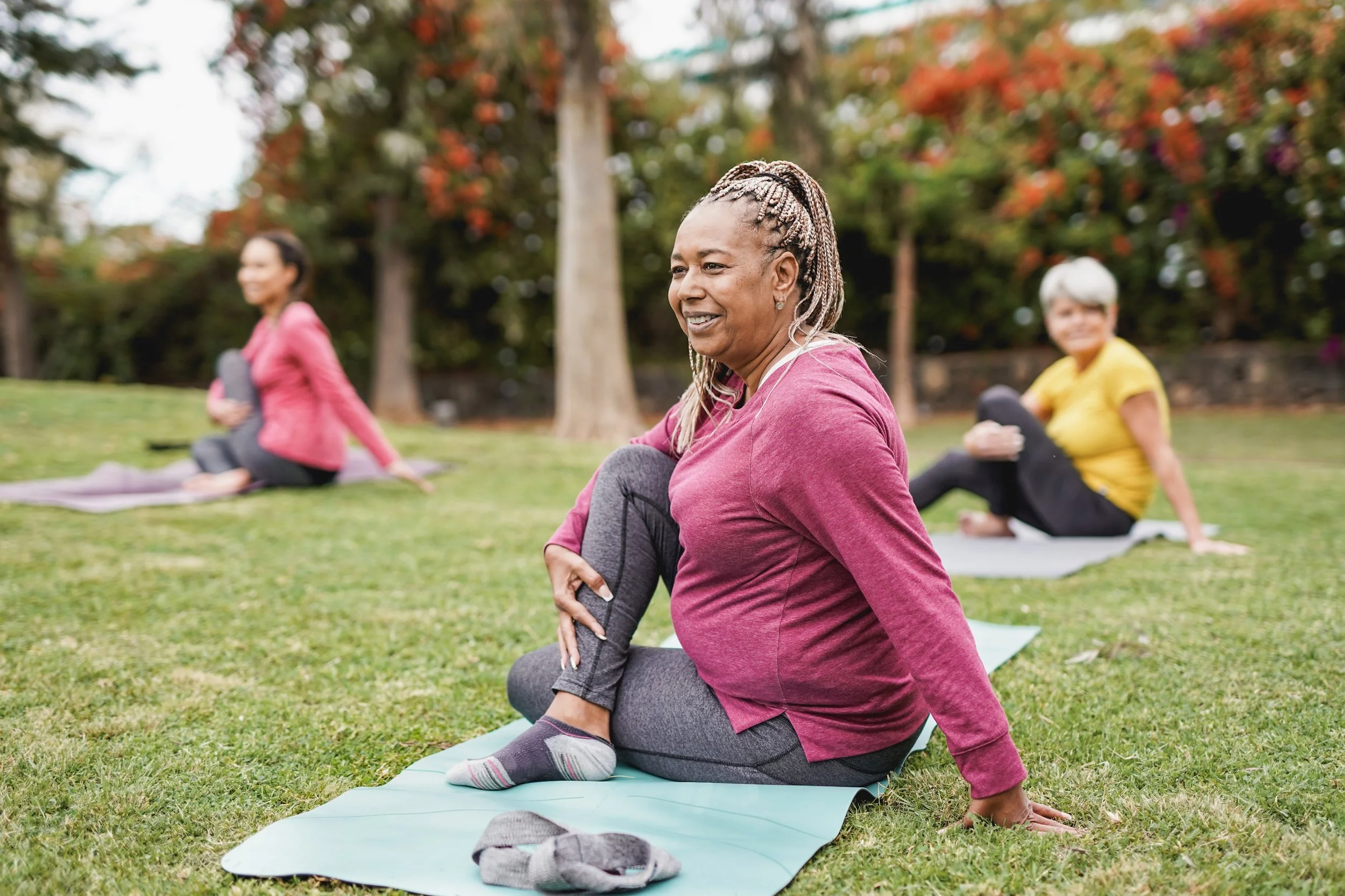
EATWELL SMALL BITES / WEEK 2
Finding balance without restriction
Let’s talk diets. All the way back in 2007, researchers looked at 31 different studies to see if it was possible to maintain weight loss. They found that the vast majority of individuals were unable to maintain weight loss over the long-term. In fact, up to two-thirds of dieters regain more weight than they lost. They figured out that diets do not lead to lasting weight loss or health benefits.
More and more people agree that making small, long-term changes in your life works better for dealing with chronic illness than just trying to lose weight. But if we don't focus on weight or diets, especially when we are sick for a long time, what do we do instead?
Intuitive Eating
Ten Principles of Intuitive Eating
Some sort of descriptive copy here?
-
Throw out the diet books, food plans, and articles that offer you false hope that that food restriction or dieting by any name you call it will grant all of your wishes for a better life. Understanding that a new and better diet is not the answer will help you be free to rediscover Intuitive Eating.
-
Make sure to eat enough energy and carbohydrates to keep your body healthy. If you don’t, you might feel so hungry that you end up eating more than you should. When you get too hungry, it's hard to eat in a careful and balanced way. By paying attention to your first signs of hunger, you can learn to trust yourself and your choices about food.
-
Let’s stop fighting with food! Allow yourself to eat what you want without any guilt. If you tell yourself that you can’t eat a certain food, you might start to feel deprived, which can lead to strong cravings and even overeating. When you finally eat that food you’ve been avoiding, you might end up eating too much and feeling guilty afterwards.
-
In Japan, people believe that enjoying food is an important part of being healthy. Sometimes, in our desire to be thin and healthy, we forget to enjoy eating. Eating what you really want in a nice, pleasant setting can make you feel satisfied and happy. When you create a good eating experience for yourself, you’ll likely eat just the right amount to feel good both physically and emotionally
-
Pay attention to the signals your body sends you when you’re full. Notice how your body feels when you’re no longer hungry. Take a moment while eating to think about how the food tastes and how full you are. This will help you enjoy your food and know when to stop eating.
-
The food police watch over the strict rules that come from dieting. Imagine a police station inside your mind, where a loudspeaker announces negative comments, hopeless thoughts, and feelings of guilt. To get back to Intuitive Eating, it's important to send the food police away.
-
First, understand that when we try to restrict food too much, it can make us feel out of control, which can lead to emotional eating. Find gentle ways to comfort yourself, deal with your feelings, and take your mind off problems. We all feel anxious, lonely, bored, or angry sometimes. Each emotion has its own triggers and ways to be soothed. Food may provide temporary comfort or distract us from pain, but it won’t really solve our problems. Eating when we’re emotionally hungry might make us feel worse later. It’s important to face the real source of our feelings and not just eat when we are upset.
-
Accept how your body is made. Just like someone with size eight shoes shouldn’t try to fit into size six shoes, it’s not realistic to expect your body to be a certain size. Mainly, you should respect your body so you can feel good about yourself. It’s hard to stop thinking like a dieter if you are too critical of your body’s size or shape. Every body deserves to be treated with respect.
-
Forget about strict exercise routines. Just move your body and notice how it feels. Instead of focusing on burning calories, think about how good it feels to be active. If you pay attention to the energy you get from moving, it can help you choose to go for a morning walk instead of hitting the snooze button.
-
Make food choices that support your health, taste good, and reflect your culture, while also paying attention to how your body feels. Remember, you don’t have to eat perfectly to be healthy. Eating one snack or one meal won’t suddenly make you unhealthy. It’s what you eat consistently over time that matters. It might be surprising for you to learn that what you eat and how you move your body only accounts for ten percent of your health. Progress, not perfection, is what counts.

Things to Try
Try to have an "all foods fit" mindset. Include your favorite foods and foods from your culture in what you eat. Instead of cutting out foods, think about how you can add healthy foods to your diet and make meals more balanced.
Listen to your body. Pay attention to and take care of signs of high or low blood sugar, feeling hungry or full, feeling happy with your food, and wanting certain foods.
Be kind to your body with your food choices. Add protein, fiber, and fat to carbs to help keep your blood sugar steady. Eat meals and snacks regularly throughout the day.
You can use your Eat Well benefits to try these tips and see how they make you feel!
Intuitive eating is a way of eating that doesn't focus on diets or weight. It's all about listening to your body's signals instead of following outside rules about what to eat and how to exercise.
There are some things we can do to stay on track and help manage our illness while also following the ideas of intuitive eating.
Conclusion
Your health involves many different things, both in healthcare and in your daily life. You can control some of these things, but not others. We want to help you become healthier. If your Eat Well benefits help you feel healthier and better about yourself, then we're off to a good start!
